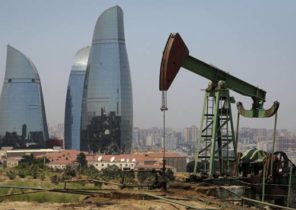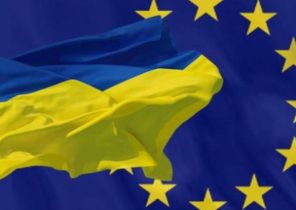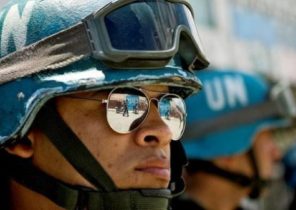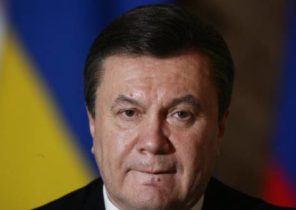
It is likely that some of those fruits that Russia will reap as a result of its victories in Aleppo, will find themselves in Eastern Libya. For more than a year Russia is strengthening its positions in Eastern Libya with the aim of creating friendly alliances and return to the region. The Russians believe that the West, in adopting resolution 1973, which did not allow Gaddafi’s troops to crush the rebellion in Benghazi (in 2011 — approx. TRANS.), in fact, sought to overthrow the regime and physically remove Muammar Gaddafi. Beginning with the Arab spring in 2011, have the opportunity to gain a foothold in the Mediterranean and around France, Italy, Spain, Britain, Germany and the United States. As a result of elections in Libya 2014 there were two competing governments in Tripoli (in the West) and El Beida (East). Russia relies on two forces: on the one hand, supporters of Gaddafi, and other former opposition, which is against the Salafi movements. Leading the forces of General Khalifa Haftar and the Chairman of the house of representatives akila Saleh. Then, as relations with the Americans in General are preserved and developed for about 20 years, the relationship between him and Moscow only this year has reached a new level of regular consultations and meetings. The Russian took the Haftarot Moscow in June. Then the parties agreed that the difficulties that prevent the Government of national unity under the leadership of Faiz Saraga, to move in the direction of successful state-building are fundamental.
Despite the mystery that surrounded the meeting of the Haftarot with the Minister of foreign Affairs Sergei Lavrov, defense Minister Sergei Shoigu and Secretary of the security Council Nikolai Patrushev, it is likely that they discussed the issues of supplying the army of the Haftarot Russian weapons. During the visit, the Haftarot in Moscow last month (in November 2016, approx. TRANS.), he again met with the above persons. In his comments to the information Agency “Sputnik”, he said that a Libyan military experts studied in Russia, but in the future when it lifted the ban on arms imports, we will be supplied with modern weapons and in this regard we need the help of Russian military experts”. Less than a week with the visit of the Haftarot as arrived in Moscow, the speaker of the Libyan Parliament akila Saleh and also met with Lavrov and Patrushev. He denies that the purpose of the visit was a request to provide weapons. In his commentary to “al-Hayat” he told me about the new “road map” for a political settlement, which will be the alternative to the agreement signed in Skhirat in December 2015 and implemented by the government of national unity. Saleh acknowledged “broad understanding” of the Russian side on this issue. After the meeting with Lavrov, he noted that there are many opportunities for new development of the old Russian-Libyan relations in the oil and gas, rail and agricultural sectors. “In addition, we need to rebuild the country and training the army, as many of our military leaders were trained in Russia and mostly know Russian language.”
Against this background, the victory of Russians in Syria may become an incentive for the restoration of Russian influence in Libya and realizing the dream of recreating a military port in the Mediterranean. In this context, Moscow has confirmed its intention to fulfil the obligations under contracts signed before 2011, and to observe the new arrangement.
Besides Moscow the Haftarot also supports Paris who share our style in relationship with him. Various French sources confirm that the French authorities support the troops Haftorah aircraft, supplying him with intelligence specialists for the army. On the other side of the Libyan arena are the Western leaders who supported the government Saraga affiliates with the force as “Bunyan al-Marsus”, in the battle for Sirte against ISIS. In the period between August and December, the Americans struck a 470 strikes on ISIS positions in Sirte at the official request of a recognized by them and the international community of the government.
All this means that shirinskii agreements do not contribute to the resolution of the conflict of legitimacy. In addition to the government of Abdullah Al-Thani and Khalifa al-GAVI, the weak General national Congress (Tripoli) and the house of representatives (in Tobruk), the conflict between them continues unabated, there are also many other armed groups. As for the most influential players, it is primarily the supporters of Gaddafi, who increasingly began to appear on the coast. In addition, in the South of the newly erupted conflict in Sabha between Gaddafi and the tribes awlad Suleiman. What is surprising is that these tribal and political divisions can explode the situation at any time. Therefore, the first step towards the formation of a new political system according to shirtscom agreements is the integration of military institutions and security institutions, not to leave the government of national unity without the ability to enforce the agreement. The second step is the removal of all arms from militias and their integration into a single state structure.
Any scenario will affect the stability and security in the countries of the region: the war in Libya continue to destabilize the situation in North Africa and create a favorable environment for proliferation in the region of terrorist groups. Fluctuations in the major Western countries also affect the situation. It is clear that the policy of Donald trump will differ from that pursued by Obama and Secretary of state Hillary Clinton, the victim fiasco in Libya — and that was one of the reasons for its defeat in the elections. It is therefore unlikely that the US will focus on the organization of political Islam in North Africa and, in particular, in Libya. Rather, they will seek common ground and to work on the implementation sheratsky agreements and involved all parties — the supporters and opponents of Gaddafi in the solution of problems.







